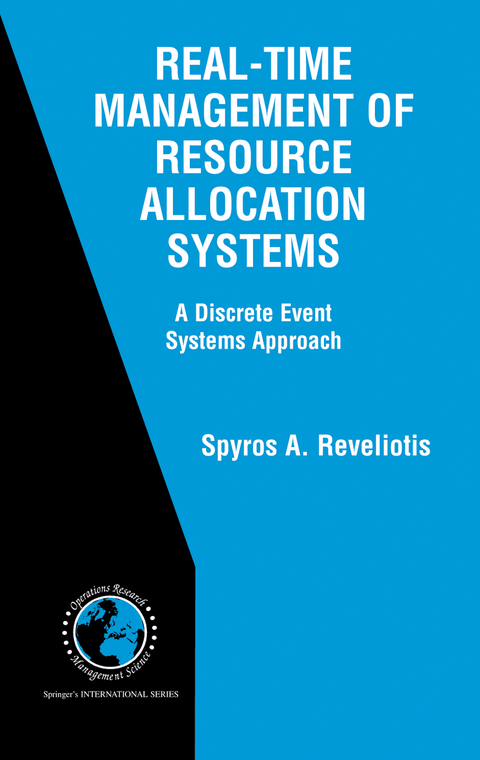
Real-Time Management of Resource Allocation Systems
A Discrete Event Systems Approach
Seiten
2004
Springer-Verlag New York Inc.
978-0-387-23960-6 (ISBN)
Springer-Verlag New York Inc.
978-0-387-23960-6 (ISBN)
Focuses on the problem of managing the resource allocation taking place within the operational context of many technological applications, including flexibly automated production systems, automated railway and/or monorail transportation systems, electronic workflow management systems, and business transaction supporting systems.
Real-Time Management of Resource Allocation Systems focuses on the problem of managing the resource allocation taking place within the operational context of many contemporary technological applications, including flexibly automated production systems, automated railway and/or monorail transportation systems, electronic workflow management systems, and business transaction supporting systems. A distinct trait of all these applications is that they limit the role of the human element to remote high-level supervision, while placing the burden of the real-time monitoring and coordination of the ongoing activity upon a computerized control system. Hence, any applicable control paradigm must address not only the issues of throughput maximization, work-in-process inventory reduction, and delay and cost minimization, that have been the typical concerns for past studies on resource allocation, but it must also guarantee the operational correctness and the behavioral consistency of the underlying automated system. The resulting problem is rather novel for the developers of these systems, since, in the past, many of its facets were left to the jurisdiction of the present human intelligence. It is also complex, due to the high levels of choice – otherwise known as flexibility – inherent in the operation of these environments.
Real-Time Management of Resource Allocation Systems focuses on the problem of managing the resource allocation taking place within the operational context of many contemporary technological applications, including flexibly automated production systems, automated railway and/or monorail transportation systems, electronic workflow management systems, and business transaction supporting systems. A distinct trait of all these applications is that they limit the role of the human element to remote high-level supervision, while placing the burden of the real-time monitoring and coordination of the ongoing activity upon a computerized control system. Hence, any applicable control paradigm must address not only the issues of throughput maximization, work-in-process inventory reduction, and delay and cost minimization, that have been the typical concerns for past studies on resource allocation, but it must also guarantee the operational correctness and the behavioral consistency of the underlying automated system. The resulting problem is rather novel for the developers of these systems, since, in the past, many of its facets were left to the jurisdiction of the present human intelligence. It is also complex, due to the high levels of choice – otherwise known as flexibility – inherent in the operation of these environments.
Resource Allocation Systems: Concepts and Problems.- Logical Control of Disjunctive / Conjunctive Resource Allocation Systems.- Sequential RAS Admitting Optimal Nonblocking Supervision of Polynomial Complexity.- Polynomial-Kernel Nonblocking Supervisory Control Policies for Single-Unit RAS.- Logical Control of RAS with Complex Process Flows.- Performance-Oriented Modelling and Control of Logically Controlled RAS.- Epilogue.
| Reihe/Serie | International Series in Operations Research Management Science ; 79 |
|---|---|
| Zusatzinfo | X, 244 p. |
| Verlagsort | New York, NY |
| Sprache | englisch |
| Maße | 155 x 235 mm |
| Themenwelt | Mathematik / Informatik ► Informatik ► Theorie / Studium |
| Technik ► Maschinenbau | |
| Wirtschaft ► Betriebswirtschaft / Management | |
| ISBN-10 | 0-387-23960-X / 038723960X |
| ISBN-13 | 978-0-387-23960-6 / 9780387239606 |
| Zustand | Neuware |
| Haben Sie eine Frage zum Produkt? |
Mehr entdecken
aus dem Bereich
aus dem Bereich
was jeder über Informatik wissen sollte
Buch | Softcover (2024)
Springer Vieweg (Verlag)
37,99 €
Grundlagen – Anwendungen – Perspektiven
Buch | Softcover (2022)
Springer Vieweg (Verlag)
34,99 €
Eine Einführung in die Systemtheorie
Buch | Softcover (2022)
UTB (Verlag)
25,00 €


